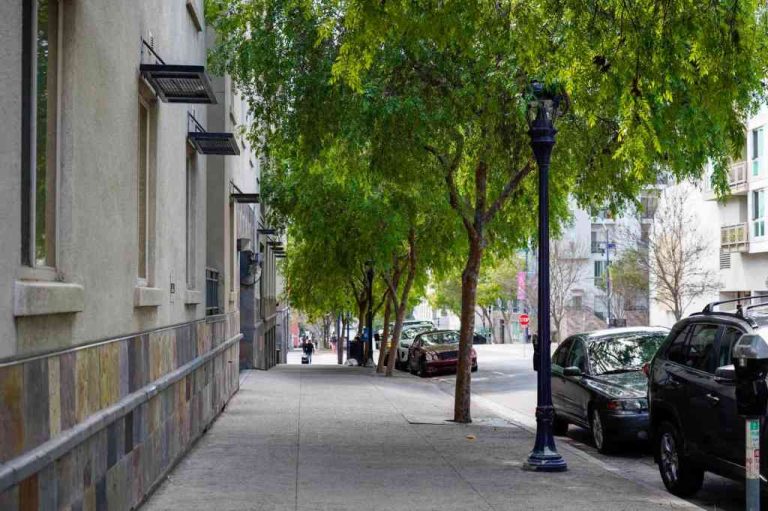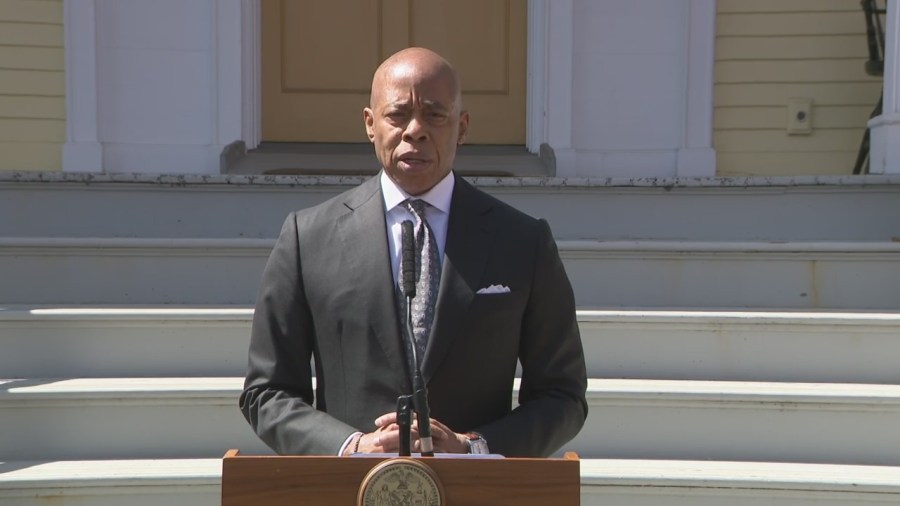
Blanck is an advocate for Lived Experience Advisors, a nonprofit organization in San Diego that trains and supports people who experienced homelessness to become civic leaders, organizers and public speakers. She lives in San Diego.
Few understand the cascading events, bureaucracy and violence that force you in homelessness and keep you there.
I lost my home. I couldn’t find another place I could afford. So I did what so many others have had to do: I lived in my car — my trusty red Subaru Forester. But it’s illegal in San Diego to live in your vehicle, so I racked up compounding fines and late fees.
I was unable to pay, so the city impounded my car, and I lost the last door I could lock at night.
I lost my driver’s license. I couldn’t renew it because of the fines and fees, so I lost the ability to get a job that required a basic Class C license.
I used a grocery cart to collect recyclables I could trade for cash. But the police arrested me for petty theft of that cart, so I lost my ability to pass a background check.
My experience is not unique.
A 2019 Urban Institute survey of people experiencing homelessness found that nearly two-in-three couldn’t pay their most recent citation. And participants in the 2023 California Statewide Study of People Experiencing Homelessness stressed that $300 to $500 additional dollars a month could have prevented them from being forced into homelessness.
I lived in an encampment until it was swept. I moved to a carport where building workers said I could stay overnight. I had nowhere else to go.
On a stormy night, in or about 2010, a patrol car officer told me I had to leave the carport by the time he returned. I did my best. But I needed more time to pack my rain-soaked belongings and bags of bottles and cans I’d collected. These were my only source of income. Recyclables money paid for my food and necessities.
Half an hour later, the officer returned and demanded to know why I was still there. I told him I was wet, cold and bone-tired but complying. He didn’t like my tone. The conversation turned ugly. To this day, seeing law enforcement gives me anxiety.
Laws that make it a crime to live on the streets give police a license to target unhoused people. These laws do nothing to address skyrocketing rents. They do not produce or preserve affordable housing. They do not protect people. These laws criminalize people who have been forced into sleeping outside.
Yet San Diego’s mayor and City Council have expanded criminalization outside of shelters and designated campsites, even when there are not enough safe, stable and affordable homes for those who need them. To be clear, a warrant alone will disqualify someone from housing vouchers and drug and mental health treatment programs. One incident that goes to court can blemish background checks, and credit reports, and prevent you from landing a job or signing a lease, even years later.
No one who has been forced into homelessness is helped by policies that punish them for being unhoused. Sadly, our local elected officials are not alone in pursuing criminalization. It has expanded across our state and country.
Oregon outlawed sleeping in tents during the day. Missouri made it illegal to sleep in state parks. Tennessee made it a felony to live in a tent. California cities have bans, too. The National Homelessness Law Center reports that 48 states have at least one law targeting people experiencing homelessness.
Our leaders can make policies that get people off the streets permanently and into housing. Instead, they would rather get people off the streets temporarily by empowering police to go after people with no choices and nowhere to go.
In the nearly 12 years that I lived on the streets, police officers stopped me every day to ask what I was doing, check my identity, look up my record and order me to go somewhere else.
The fact is the police have no role in solving homelessness. Police officers are not service providers. Police budgets don’t pay for long-term housing.
I was forced into homelessness by the costs of housing and the costs of poverty. Criminalization of my unhoused status gave every police officer I encountered permission to target me.
Housed San Diegans are fed up. Unhoused San Diegans are sick and tired of the status quo too. But siccing the cops on people isn’t going to solve anything. The only solution is for every unhoused person to have a home.





